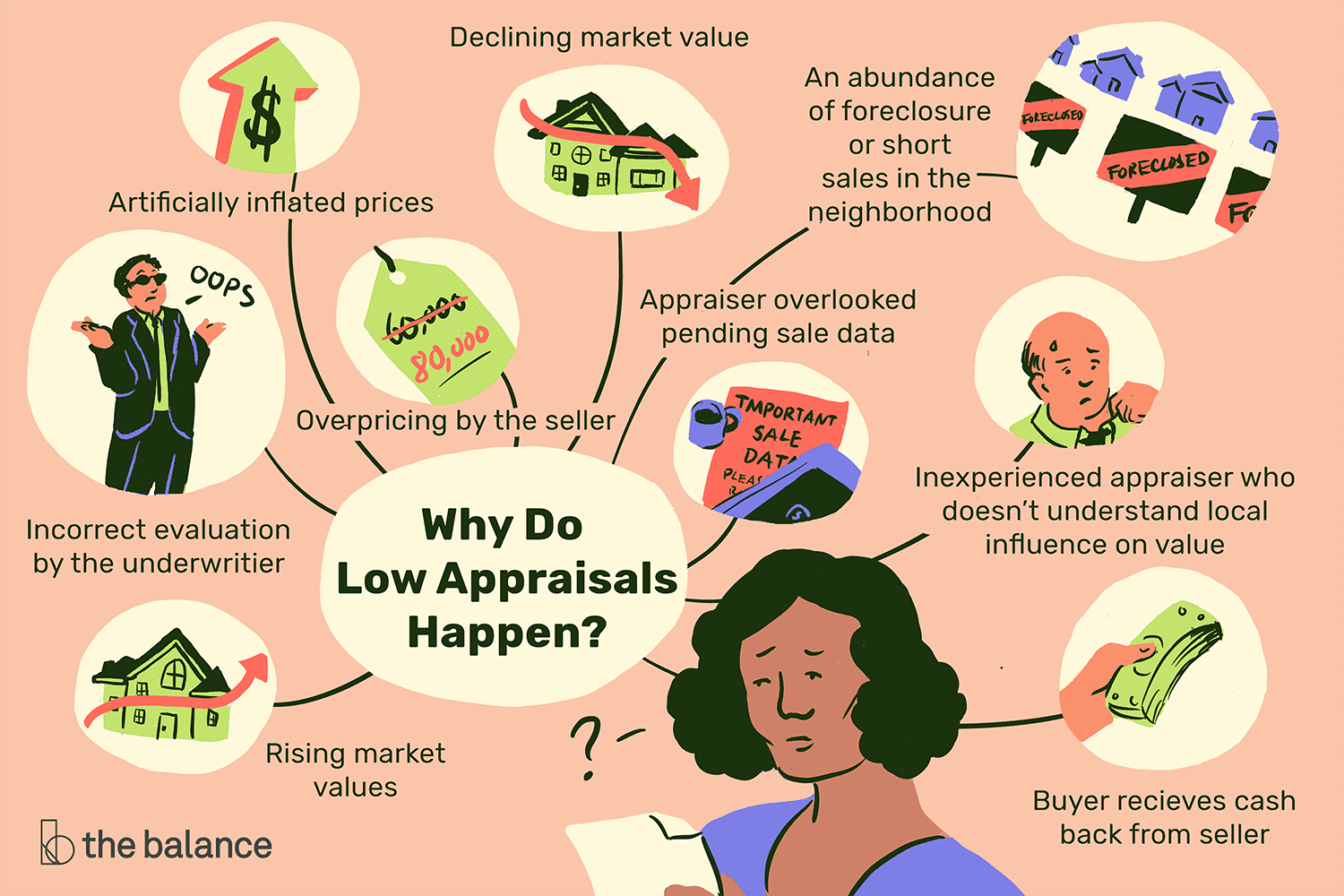Published April 2, 2025
What to Do When Your Home Appraisal Comes in Low: Expert Tips for Buyers & Sellers

Expert Tips for Handling a Low Home Appraisal: Negotiation Strategies & Solutions
A low home appraisal can be a frustrating obstacle for both buyers and sellers. Whether you're in the midst of purchasing your dream home or preparing to list your property, this post equips you with expert advice, actionable strategies, and savvy negotiation tips to overcome a low appraisal and secure the best possible outcome.

Understanding the Home Appraisal Process
A home appraisal is an independent evaluation of a property’s market value conducted by a licensed professional. Lenders require this process to ensure that the loan amount aligns with the true worth of the property. Factors such as comparable home sales, property condition, location, and home improvements all contribute to the final appraisal value.
Image Description: A diagram illustrating the home appraisal process, including key factors like comparables, property condition, and market trends.
By familiarizing yourself with how appraisals work, you’ll be better prepared to identify and challenge inaccuracies when the appraisal comes in too low.
Why Do Home Appraisals Come in Too Low?
Before diving into solutions, it’s essential to understand some common reasons why an appraisal might fall short of expectations:
- Inaccurate Comparables: Appraisers might use outdated or mismatched sales data that don’t accurately reflect your property’s true value.
- Market Fluctuations: Rapid shifts in local real estate markets can influence appraisal values unexpectedly.
- Overlooked Home Improvements: Upgrades and renovations may not be fully recognized if proper documentation isn’t provided.
- Unique Property Features: Custom features or unique designs might not directly compare to standard properties in the area.
.webp)
Being aware of these factors allows you to prepare a robust response if your appraisal comes in lower than expected.
Expert Tips for Buyers
A low appraisal during the home buying process can create challenges, especially if your mortgage approval hinges on the appraisal value. Here are some expert strategies to consider:
-
Request the Appraisal Report:
Obtain a full copy of the appraisal report from your lender. Scrutinize the details, especially the selected comparables and any noted discrepancies. -
Challenge Inaccuracies:
If you find errors or outdated data, compile recent comparable sales and relevant documentation that supports a higher valuation. An appeal might prompt a re-evaluation. -
Negotiate with the Seller:
Use the low appraisal as leverage. Request a price reduction or negotiate concessions, such as closing cost assistance, to bridge the gap between the appraisal and purchase price. -
Consider a Second Appraisal:
In some cases, ordering a second appraisal can be a viable option—though it comes at an additional cost, it may provide a more favorable value.
It’s worth noting that studies have found approximately 10% of home appraisals come in low, making this a fairly common hurdle during home transactions.
Expert Tips for Sellers
For sellers, a low appraisal can jeopardize a forthcoming deal or necessitate significant re-negotiation. Consider these proactive steps:
-
Obtain and Review the Appraisal Report:
Secure a copy of the report and carefully review the data, particularly the list of comparable properties used. -
Document Home Improvements:
Compile evidence of upgrades and renovations that may not have been considered. Receipts, permits, and before-and-after photos can bolster your case for a higher appraisal. -
Engage Your Realtor:
Experienced realtors can provide market insights and advocate on your behalf during negotiations. Their expertise is invaluable in challenging an appraisal or renegotiating terms. -
Prepare for a Reassessment:
If the low appraisal is due to overlooked upgrades or unique features of your property, consider scheduling a minor pre-appraisal review with a trusted professional before the official evaluation.

By arming yourself with comprehensive documentation and expert representation, you can often negotiate a revised sale price or a second opinion that aligns more closely with your expectations.
Key Strategies for Negotiating a Low Appraisal
Whether you're buying or selling, the following strategies can help you turn a low appraisal into an opportunity:
-
File an Appraisal Appeal:
Initiate a formal appeal with the lender by addressing any errors or discrepancies in the report. Provide updated comps and supporting documentation. -
Collaborative Negotiations:
Both parties can work together to explore options that mitigate the impact of a low appraisal. This includes agreeing on a new sales price or altering financing terms. -
Increase the Down Payment (For Buyers):
If you’re committed to purchasing the home, consider covering the difference between the appraisal value and the sale price by increasing your down payment. -
Reassess the Market:
Engage a local expert to conduct a fresh market analysis. Sometimes a second perspective can highlight undervalued aspects of the property not captured in the initial appraisal.

These strategies, when executed effectively, can help bridge gaps in valuation and keep your transaction moving forward despite a low appraisal.
Conclusion
A low home appraisal doesn't have to derail your real estate ambitions. By understanding how appraisals work, identifying the root causes of a low valuation, and employing targeted strategies from both the buyer’s and seller’s perspectives, you can navigate this challenge with confidence and clarity. Remember, whether it’s appealing an appraisal, negotiating adjustments, or seeking a second evaluation, every step you take brings you closer to achieving an equitable outcome.
Keywords: low home appraisal, expert appraisal tips, low appraisal negotiation, home appraisal solutions, real estate appraisal strategies, challenging a low appraisal.
For more expert insights and in-depth market analysis, stay tuned to our blog and subscribe for the latest real estate guidance—turning appraisal challenges into smart, strategic opportunities.
If you found these tips helpful, please share this post and leave your thoughts in the comments below. Your feedback helps us provide even more valuable insights for your real estate journey.





